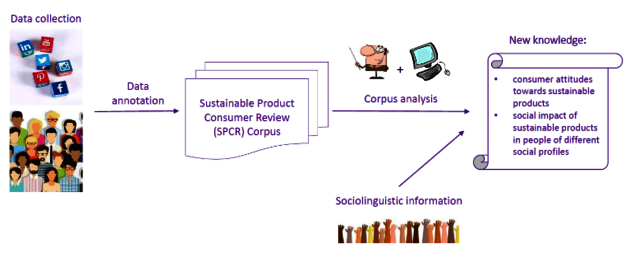Project Description
The LangTool interdisciplinary project (1/9/2018-31/8/2022, funded by the Kamprad Family Foundation) at Lund University is unique in combining insights from language technology, linguistics, statistics and economics. The goal is to chart consumer attitudes towards sustainable products, and more specifically organic food products, in order to get a better grasp of why consumers opt for such products and how they evaluate them afterwards. We map out the interaction between consumer attitudes and five sociodemographic variables:gender, age, educational background, professional activity and nationality, seeking answers to questions such as what the criteria are for different types of consumer choice of sustainable products. We also analyse consumers’ descriptions and assessments of their experience with the products and account for what sensory descriptors and the evaluative expressions there are in relation to the sociodemographic profiles. From an economics point of view, the information about consumer attitudes is beneficial for companies, both from a financial point of view and from the point of view of how sustainable products are best developed, presented and promoted.
The purpose of this project is to contribute to the knowledge about consumer motivation and post-experiences in order to improve our understanding of how consumers of various social profiles react towards the market of about organic food products. The project will thus contribute not only to our knowledge about consumer satisfaction, but also to product assessment, language use, and the social impact of organic food products to the different social profiles included in the study. Our project focuses primarily in Sweden and Greece, as these are two countries with different socioeconomic profiles, one in the north and one in the south of Europe. The four research questions that our research provides answers to are the following:
RQ1: Why do people of different social profiles choose sustainable?
RQ2: Do these products fulfil the consumers’ initial expectations? What are the findings that highlight the post-experience of different social profiles?
RQ3: How do consumers provide feedback about sustainable products through language? What are the descriptors of the experiences? How are the assessments presented?
RQ4: How can this information be used to improve the social impact of sustainable products?

